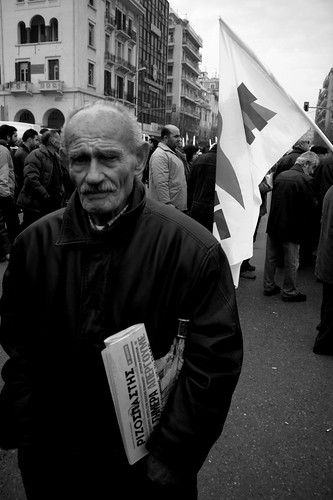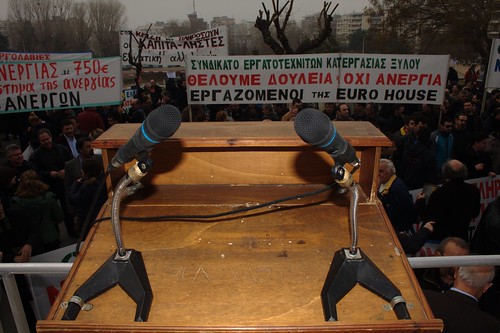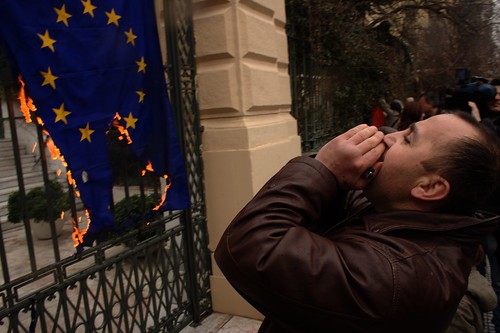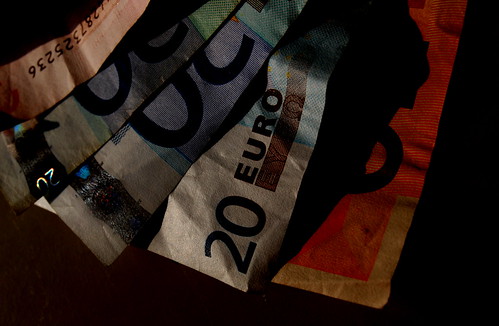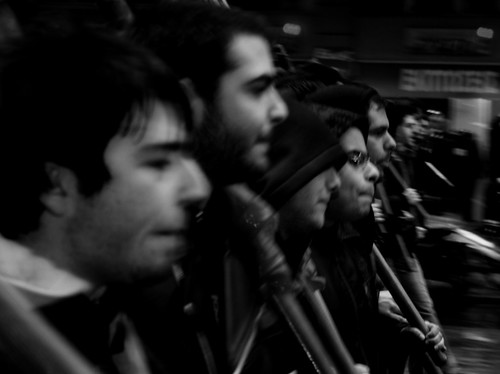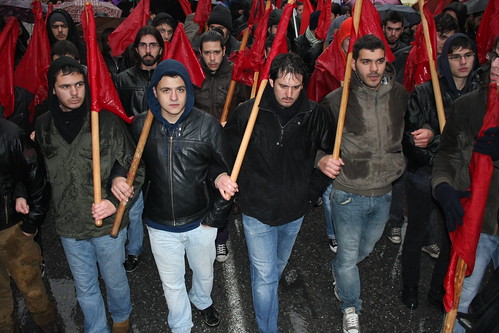
One effect of Greece's recent financial problems is that the country has been on the front pages of the world's newspapers and media sites for the last few weeks. It is not the kind of publicity that any country, especially one which relies so thoroughly on tourism would wish for. As a result journalists round the globe have turned their attention to Athens and with it brought with them an array of misconceptions and cliches which they regularly use to lard their reports.
One of the most common is the use of allusions to ancient Greece in order to explain the present situation. This, of course might make for a clever opening gambit but no more explains what is happening at the moment than an attempt to account for Gordon Brown's policy decisions in terms of King Alfred's burnt cakes or Sarkozi's foreign policy by referencing Gaul. By using these sad, old cliches reporters show us how little they understand about the dynamics of the modern Greek state and the political and economic forces that drive it.
Also the fact that Greece is a popular tourist destination visited by millions each year seems to have blinded foreign commentators to the fact that life really is not a beach. A week spent on Crete or Rhodes offers no more insight into Greece's economic woes than a week spent in a crofter's cottage in the Outer Hebrides can explain The Bank of England's base interest rate policy.
On the other hand the traumatic modern history of Greece which reads as a saddening litany of wars, savage political repression, and privation lightened only by a hard won fight to escape crushing poverty has been ignored in favour of pithy quotes about Athenian democracy. One of the reasons why people are so fearful of what the current austerity measures will bring is the raw memories of the hardships of the post war period, a time which saw millions flee the country in search of a decent living. The horrors of starvation and malnutrition are not just footnotes in academic journals but rather a part of many Greek's folk memory.
Along with material deprivation went a brutal system of social control which meant that those suspected of any kind of leftist or even liberal political views were subject to harrasment, detention or exile. Even though Greece's traumatic civil war ended in 1949 the repression it engendered continued for decades afterwards, seriously delaying the development of a modern democratic institutions.
It is against this backdrop, which is rarely mentioned in the foreign press that people are anxious and angry about what is in store for the country. There is the fear that with the massive cuts in public spending likely to be implemented either by Greece's EU partners or the IMF many will tumble back into the kind of grinding poverty that was the norm just a generation ago and that all the dreams they had for their children will become wishful thinking. With such dire economic conditions the fear is that the autocratic reflexes of much the country's political and economic elites will once more find more fertile ground with the desperate.


